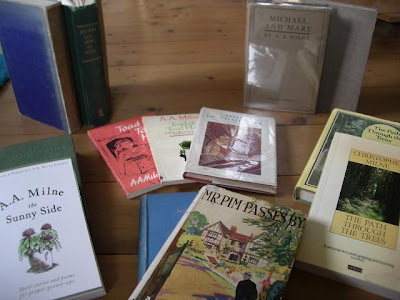


I've never used Flickr before, but I thought today was momentous enough to warrant it. In case the above pictures prove to subtle, this is post no.100 on Stuck-in-a-Book. It was rather a rash decision, to start a blog and enter the book blogging community while in the middle of revision for finals, but it didn't prove too great a distraction. Plus, there were even more people to cheer me along through the exams - and to wish me well, I hope, as I leave home... for now... (hope the parentals don't read that bit). This will be the last blog entry before I go back to Oxford, and you must forgive me if I'm away for a few days, as it might take a while to sort out the internet connection in Regent Street, Oxford.
Today's trip to Bristol was nice - The Carbon Copy's new abode is an enormous house, shared with a fair few others, and very beautiful, if a little dusty - but sadly Our Vicar's Wife and I were unable to locate the Bookbarn on the way back. The lack of any precise knowledge as to its whereabouts, alongside my complete inability to read a map, and OVW's... actually, she can't really be held to blame for any of it. But don't tell her I said so. Anyway, this leaves me with rather more money and rather fewer books than intended.
Have sidelined Deceived With Kindness for now, and reading a 1933 play called The Brontes (give or take an accent). Guess what it's about. Will report back later, but rather anticipate my review being somewhat scathing...
So, cracking open the champagne to 100 posts; here's to 100 more. And then some.







































